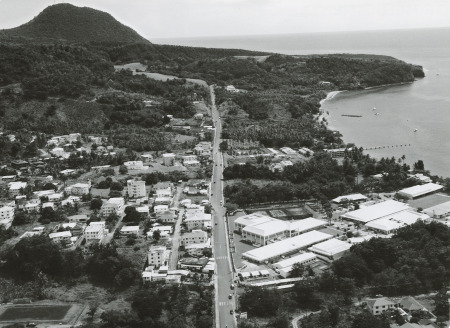US Congress told Ross University may be shortchanging taxpayers and students
Evidence presented to Congress suggests Ross Medical School on Dominica may be shortchanging U.S. taxpayers and students, officials allege.
Ross accepts U.S. students who may have difficulty qualifying for medical schools in the United States. The U.S. students qualify for federally backed student loans, which last year amounted to more than $150 million, the St. Petersburg (Fla.) Times reported Saturday.
Fewer than one-third of Ross's students finish in four years, compared with nearly 100 percent at U.S. medical schools, and about 20 percent of the students fail to find a residency placement in the United States, which is key to obtaining a license to practice, regulators who accredit offshore medical schools recently told Congress.
Ross was opened in 1978 in the Northern town of Portsmouth in Dominica, and since then over six thousand students have graduated from the institution.
 Ross Univesity is located in Portsmouth, Dominica.
Ross Univesity is located in Portsmouth, Dominica.A Ross spokeswoman defended the school as a high-quality institution, comparable to U.S. medical schools.
"At a time when our country is in desperate need of quality physicians, they will help fulfill the unmet need and make important contributions to society," Rebekah Herbison said.
According to the St. Petersburg (Fla.) Times:
• At Ross, fewer than one-third of the students finish in four years, compared to nearly 100 percent at U.S. medical schools.
• Since Ross, like other Caribbean medical schools, doesn't have a teaching hospital, it pays hospitals stateside for students' clinical training, with wide variations in quality.
• Students of foreign medical schools like Ross graduate with higher average debt, $235,000 compared to the average $158,000 owed by graduates of U.S. medical schools, according to an August report to Congress by regulators.
• About 20 percent of Ross graduates fail to land a residency, the key to a license to practice in the United States. If they cannot pay their student debts, taxpayers are left holding the bag.
Robert Ross, a commodities trader in New York, started the medical school in 1978, but by 2000, he had sold majority interest in both the medical school and an affiliated veterinary school in St. Kitts to a group of New York investors. Three years later, both schools were acquired by DeVry for $310 million.
Last year, DeVry, better known for its tech training schools, reported $165.7 million in net income after taxes. But the company also reported an additional $140 million in tax-free income from the Ross operations.
In a report to Congress in August, the group that accredits offshore medical colleges recommended that the schools raise their standards and improve reporting on everything from test scores to graduation rates to total cost.
A former Ross registrar, said he agrees with the need to stiffen entrance requirements, saying: "We want doctors but we can't give that kind of money to everyone who's chasing a dream of being an M.D.," he said. "We need to be a little bit more discriminating about who those tax dollars go to."